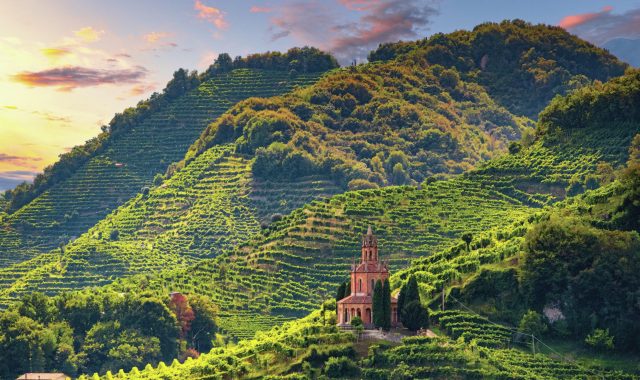Prosecco faces ‘annus horribilis’
By James EvisonA perfect storm of unpredictable weather conditions and issues with labour have meant the current Prosecco harvest has been called an “annus horribilis”.

A combination of heatwaves and floods across Italy has resulted in a challenging harvest across the Consorzio di Tutela del Prosecco DOC, which normally produces 130 million bottles for the UK market alone.
Even for the grapes that do survive, there are concerns they won’t be picked in time, as manual workers in Italy are opting for other types of labour, such as construction or logistics, according to Giosue Mattei from the CGIL union.
Innocente Nardi, who is the owner of La Farra vineyard in the heart of the Conegliano Valdobbiadene Prosecco Superiore DOCG told the Daily Express: “We can’t find the workers, especially people with skills. There are ever fewer people who are prepared to take on manual work.”
Sandro Bottega, the founder and managing director of Bottega SpA, told La Repubblica that it was an “annus horribilis for Prosecco”.
He said: “I can’t remember a harvest like it in the last 40 years. In July I was optimistic because with the amount of sun and rain we were predicting a special year, but now I’m really demoralised.”
Partner Content
It follows scientific research which suggests that mountainside vineyards could be wiped out by climate change, impacting Prosecco production and other grapes.
Study lead author Dr Paolo Tarolli, of the University of Padova in Italy, said: “The risk is not only losing an agricultural product or seeing a landscape change, negatively impacting the local economy. The risk is losing entire communities’ history and their cultural roots.”
“The key to success lies in combining the traditional knowledge of winemakers with innovation and scientific rigour. In this way, farms can work closely with scientists to optimise investments for a more functional, sustainable, and safe agricultural landscape – a winning alliance to face these diverse natural and anthropogenic challenges.”
The president of the Consorzio di Tutela del Prosecco DOC, Stefano Zanette, told the Telegraph that there were poor harvests in “limited areas’ but overall played down concerns about the totality of the harvest. Zanette said that although the harvest would be a few days later in 2023, “in general terms we don’t expect the falls in production that had been feared”.
He also said that in many parts of the region there were machines that picked the grapes, which made labour shortages less of an issue.
Related news
Sensi: wineries must 'strike the right balance' in volatile market




